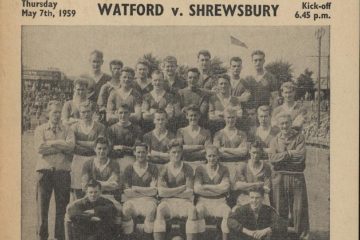The Influence of David Sullivan in Business and Football

Introduction: David Sullivan’s Impact
David Sullivan is a significant figure in both the business and sports sectors, particularly known for his role in English football. As co-owner of West Ham United Football Club, Sullivan’s influence extends beyond just managing a football team; he is also a prominent businessman with diverse interests. The analysis of Sullivan’s ventures and ownership strategies reveals not only his commitment to football but also his impact on the commercial landscape in which the sport operates.
Business Ventures
David Sullivan began his career in the 1970s by setting up a publishing company that focused on adult magazines. This venture proved successful and provided him with significant capital, which he later used to invest in various businesses and properties. Through his business acumen, Sullivan has amassed considerable wealth, enabling him to diversify his investments into sectors ranging from retail to real estate.
In the late 1990s, Sullivan’s entrepreneurial spirit led him to venture into the world of football management. His ownership style is often characterised by a hands-on approach, implementing cost-saving measures while attempting to ensure competitive performance on the field.
Football Ownership and West Ham United
David Sullivan’s foray into football ownership began in earnest in 2010 when he, alongside David Gold, purchased a controlling interest in West Ham United. Since then, the club has undergone numerous changes, reflecting Sullivan’s vision of improving both its financial stability and operational structure.
Under Sullivan’s ownership, West Ham has experienced several ups and downs, including relegation battles and a memorable move to the London Stadium in 2016. Despite challenges, Sullivan has made strides to position the club as a competitive force in the Premier League, demonstrating his dedication to the club and its supporters.
Recent Developments
In recent months, Sullivan has faced scrutiny as fans and commentators debate the club’s performance and management decisions. Calls for investment and stronger strategies to retain talented players highlight the pressures Sullivan confronts as a football club owner. Nevertheless, Sullivan remains committed to the long-term vision for West Ham United, often emphasizing the importance of building from the youth academy to secure a sustainable future for the club.
Conclusion: The Legacy of David Sullivan
David Sullivan’s contributions to both business and football illustrate the intersections of entrepreneurship and sports management. As a football club owner, he carries the dual responsibility of maintaining financial health while striving for success on the pitch. The future of West Ham United under his stewardship remains a topic of interest for many, and his decisions in the coming seasons will likely shape the club’s legacy. Ultimately, Sullivan’s career exemplifies the challenges and opportunities present in the world of modern football ownership and highlights the critical role that business leaders play in sports today.









